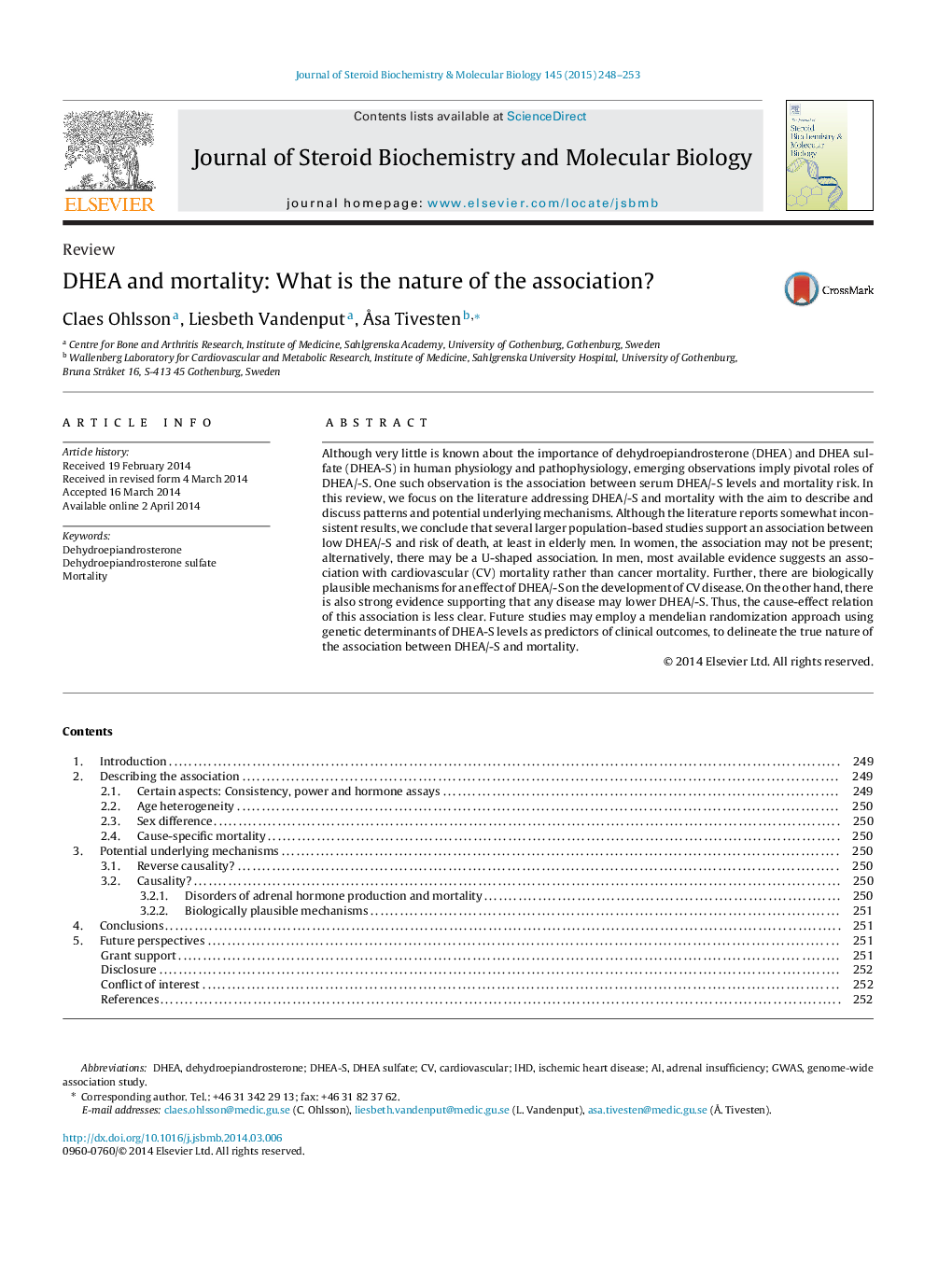| Article ID | Journal | Published Year | Pages | File Type |
|---|---|---|---|---|
| 1991466 | The Journal of Steroid Biochemistry and Molecular Biology | 2015 | 6 Pages |
•Larger studies support an association between DHEA/-S levels and mortality risk in elderly men.•In women, the association may not be present; alternatively, there may be a U-shaped association.•Most available evidence suggests an association with CV mortality rather than cancer mortality.•There are biologically plausible mechanisms for an effect of DHEA/-S on CV disease.•On the other hand, there is also strong evidence supporting that any disease may lower DHEA/-S.
Although very little is known about the importance of dehydroepiandrosterone (DHEA) and DHEA sulfate (DHEA-S) in human physiology and pathophysiology, emerging observations imply pivotal roles of DHEA/-S. One such observation is the association between serum DHEA/-S levels and mortality risk. In this review, we focus on the literature addressing DHEA/-S and mortality with the aim to describe and discuss patterns and potential underlying mechanisms. Although the literature reports somewhat inconsistent results, we conclude that several larger population-based studies support an association between low DHEA/-S and risk of death, at least in elderly men. In women, the association may not be present; alternatively, there may be a U-shaped association. In men, most available evidence suggests an association with cardiovascular (CV) mortality rather than cancer mortality. Further, there are biologically plausible mechanisms for an effect of DHEA/-S on the development of CV disease. On the other hand, there is also strong evidence supporting that any disease may lower DHEA/-S. Thus, the cause-effect relation of this association is less clear. Future studies may employ a mendelian randomization approach using genetic determinants of DHEA-S levels as predictors of clinical outcomes, to delineate the true nature of the association between DHEA/-S and mortality.
